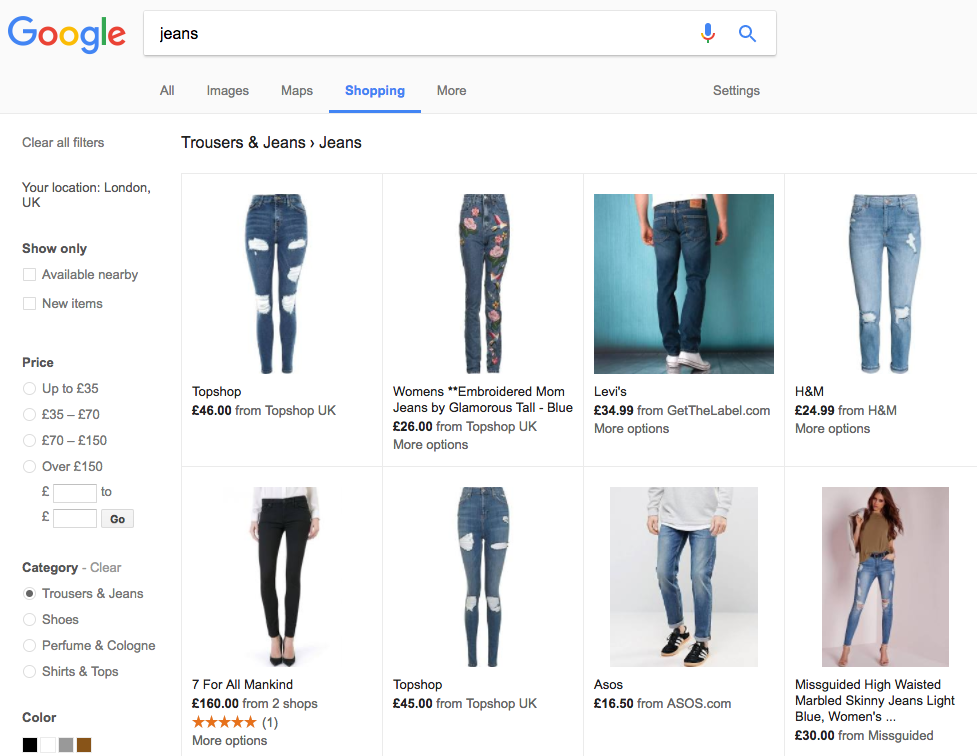Google has today been hit with a $2.72 billion fine by the European Commission (EC) for abusing its search engine power in promoting its own shopping comparison service – putting them to the top of the results search. This is commonly known as an anti-trust penalty, and is the largest of its kind.
Indeed, this case is so severe that the amount fined is more than double the previous record – the $1.2 billion charged to Intel in 2009.
In addition to the fine, Google was also ordered to end the practice – of what the EC views as anti-competitive behaviour – within 90 days or face additional financial penalties.
“Google has come up with many innovative products and services that have made a difference to our lives. That’s a good thing,” Margrethe Vestager, the EC commissioner in charge of competition policy, said in a statement.
>See also: The chickens have come home to roost: TalkTalk fined
“But Google’s strategy for its comparison shopping service wasn’t just about attracting customers by making its product better than those of its rivals. Instead, Google abused its market dominance as a search engine by promoting its own comparison shopping service in its search results and demoting those of competitors.”
This fine could have been more. The EC is entitled to charge Alphabet – Google’s parent company – up to 10% of its annual revenue, which was more than $90 billion ($70.8 billion) in the last financial year.
The company could afford the fine as it currently has $172 billion in assets.
The European Commission also said that it was in the middle of preparing two additional anti-trust cases against the internet giant. In announcing the fine, the EC said it “has already come to the preliminary conclusion that Google has abused a dominant position in two other cases, which are still being investigated.”
These cases involve Google’s Android mobile operating system and AdSense. The EC believes that Google has used its dominance, in both cases, to limit choices to third-party competing services.
Google has disagreed with ruling and said it will appeal the decision.
“We respectfully disagree with the conclusions announced today,” said Kent Walker, Google’s senior vice president and general counsel, in a statement. “We will review the Commission’s decision in detail as we consider an appeal, and we look forward to continuing to make our case.”
>See also: BT fined £42 million by Ofcom
This is, however, the latest in a long line of run-ins with regulators that Google has faced over the last few years. It appears this trend will continue.
“The Commission also continues to examine Google’s treatment in its search results of other specialised Google search services,” the commission wrote. “Today’s Decision is a precedent which establishes the framework for the assessment of the legality of this type of conduct. At the same time, it does not replace the need for a case-specific analysis to account for the specific characteristics of each market.”
Giving some insight following this news, Andrew Clarke – EMEA Director at One Identity says: “As our economy transitions from a bricks to clicks environment; businesses have to think about the trading implications of that shift. Whereas in the physical world businesses have a strong check and balance on their employees; in the internet space a standalone decision can be implemented in seconds and there is a danger that it may contravene business policy or even legal constraints.”
“A lesson to be learned from the Google story is that all businesses need to take care in going on-line and ensure that corporate governance extends to this new way of doing business. To do that companies need to have in place a tool to control their employees (identity) and what they are empowered to do on behalf of the company. For a shopping site for example; pricing being loaded on-line should be validated by an extra level to ensure integrity. The danger in not getting it right is reputational damage- and even fines.”
>See also: The true cost of GDPR for British businesses
History
This fine has been almost a decade in the making. Google first launched a comparison shopping service in Europe back in 2004. After failing, to a degree, it re-strategised in 2008.
According to the EC, after this Google’s search engine market share in Europe topped 90%, significantly more than in the US. At the same time rival shopping services in the UK.saw traffic drop 85%, while in Germany traffic fell 92%, and in France by 80%.
“These sudden drops could also not be explained by other factors,” the EC wrote. “Some competitors have adapted and managed to recover some traffic but never in full.”
In response, Google said it believes the EC fundamentally misunderstands the dynamics of the marketplace for comparison search services.
>See also: Google’s strong arming to shape a secure web just took another twist
“When you shop online, you want to find the products you’re looking for quickly and easily,” said Google’s Walker in his statement. “And advertisers want to promote those same products. That’s why Google shows shopping ads, connecting our users with thousands of advertisers, large and small, in ways that are useful for both. We believe the European Commission’s online shopping decision underestimates the value of those kinds of fast and easy connections. While some comparison shopping sites naturally want Google to show them more prominently, our data show that people usually prefer links that take them directly to the products they want, not to websites where they have to repeat their searches.”
The UK’s largest conference for tech leadership, TechLeaders Summit, returns on 14 September with 40+ top execs signed up to speak about the challenges and opportunities surrounding the most disruptive innovations facing the enterprise today. Secure your place at this prestigious summit by registering here







